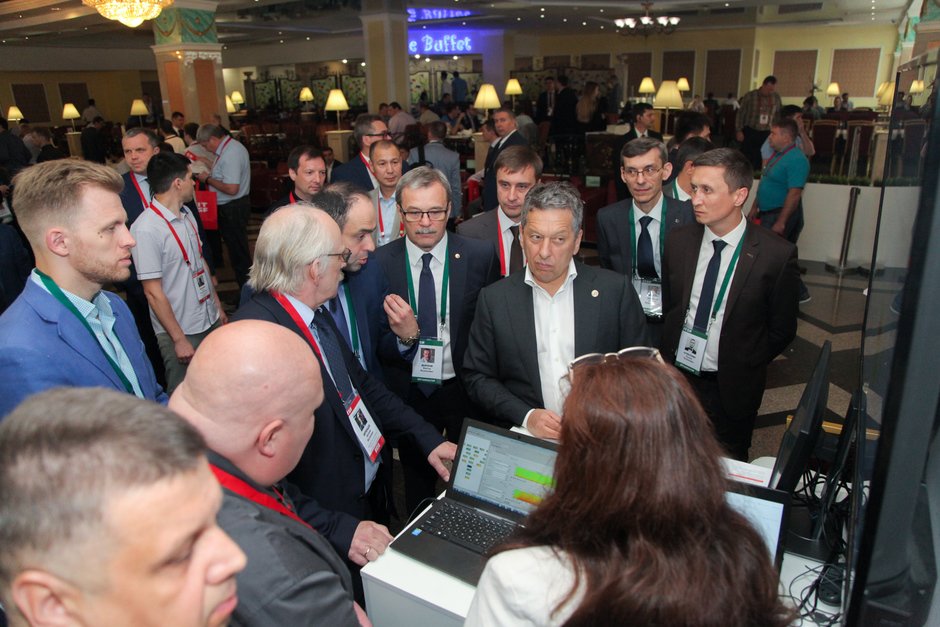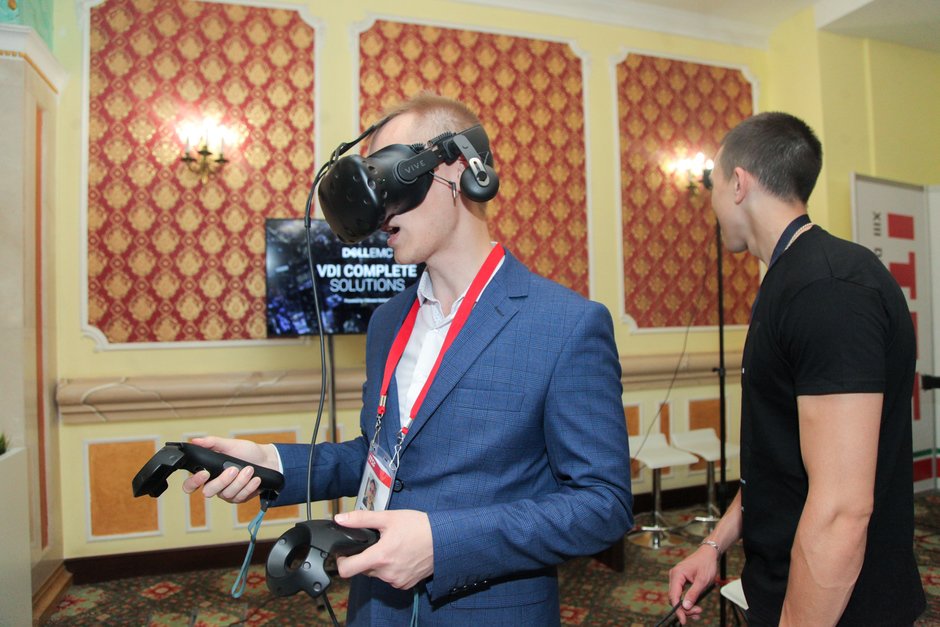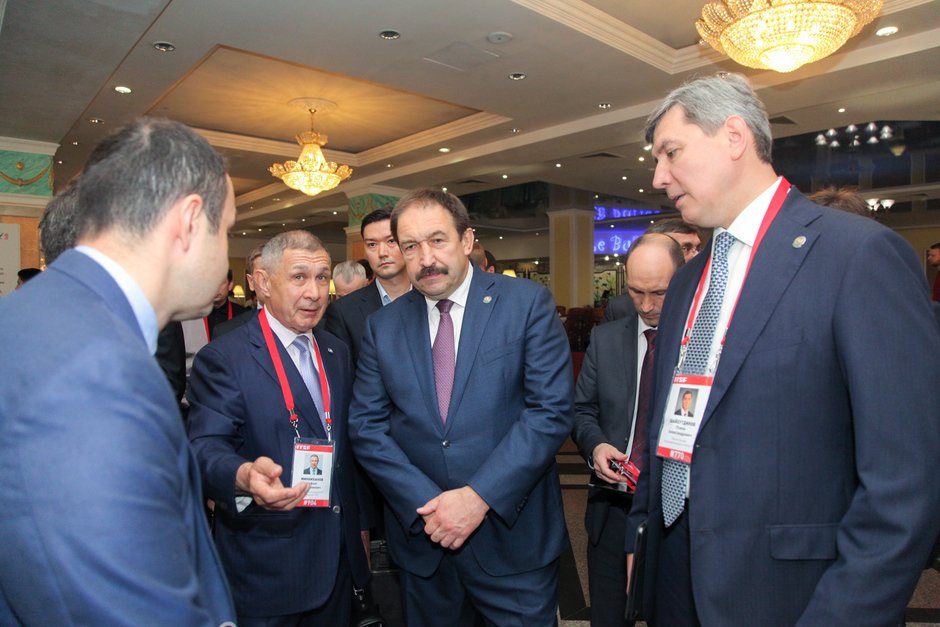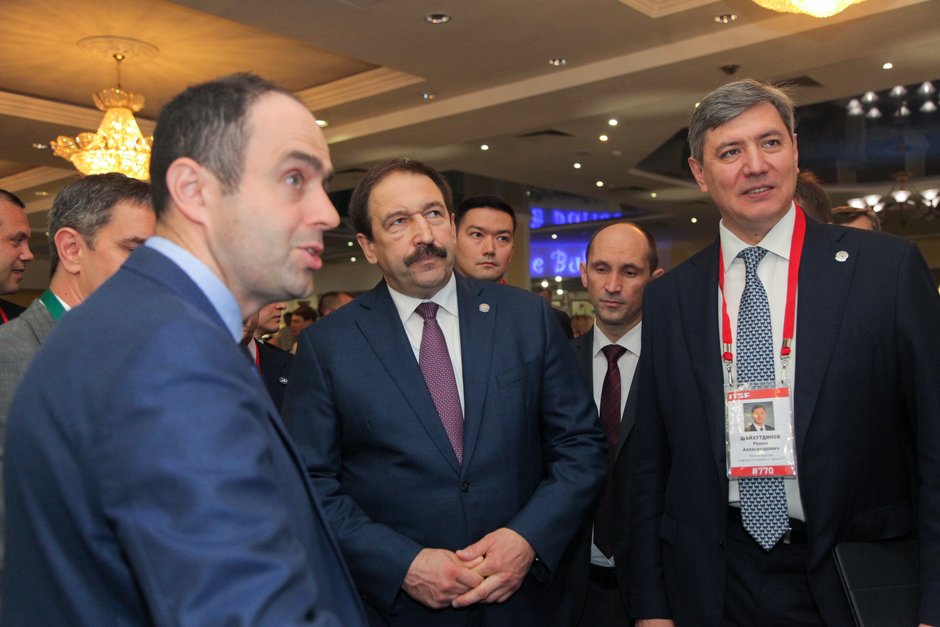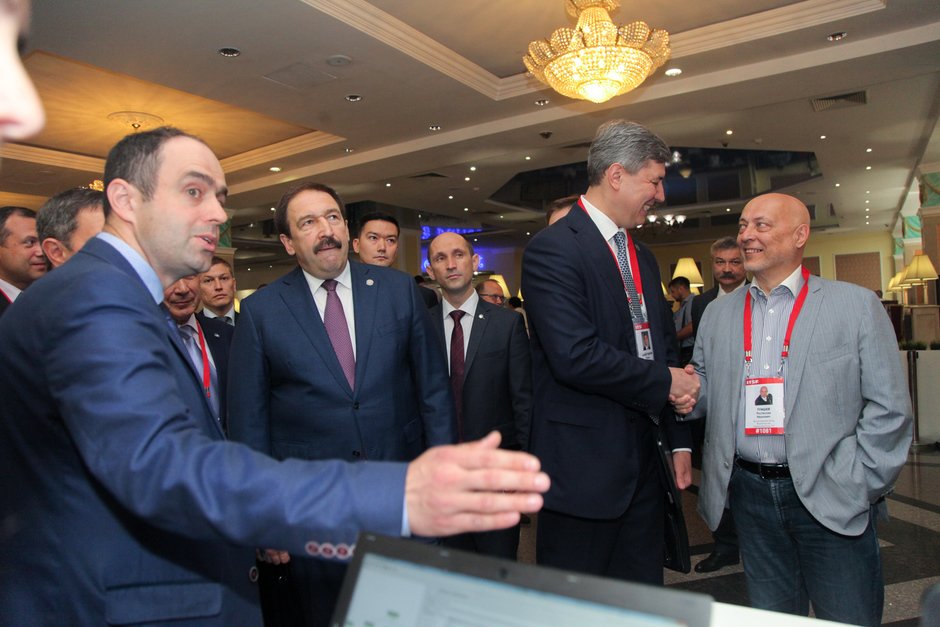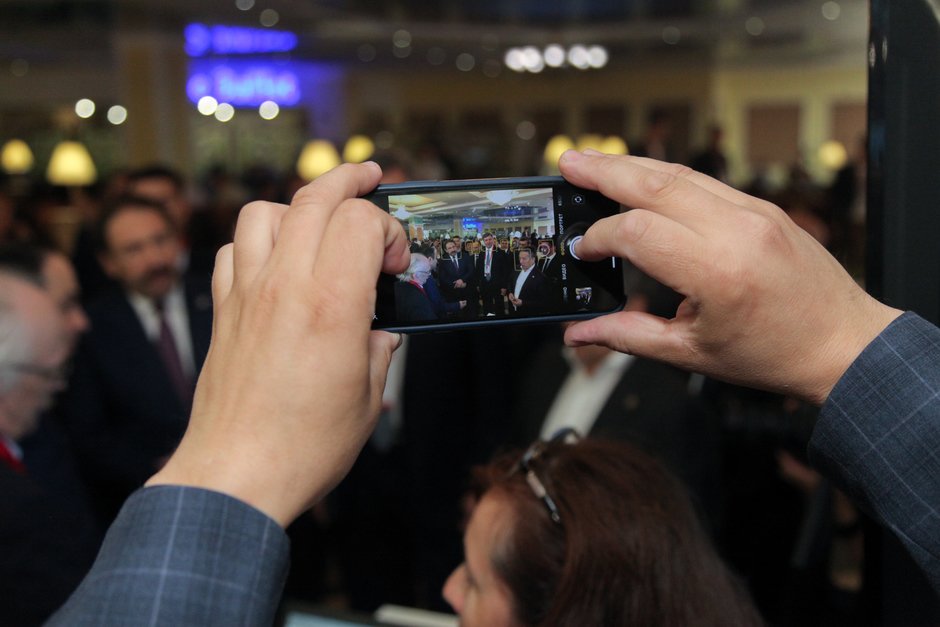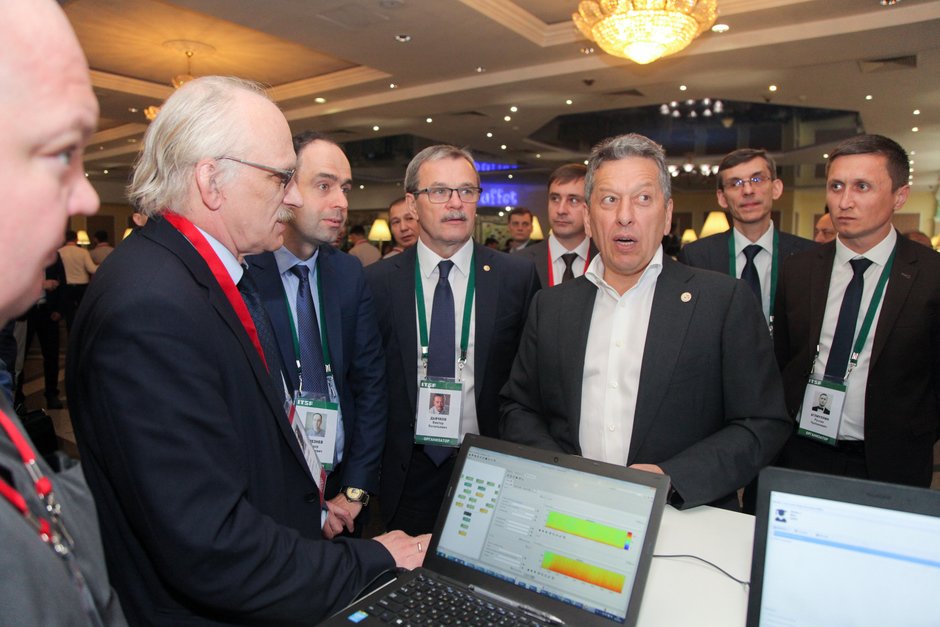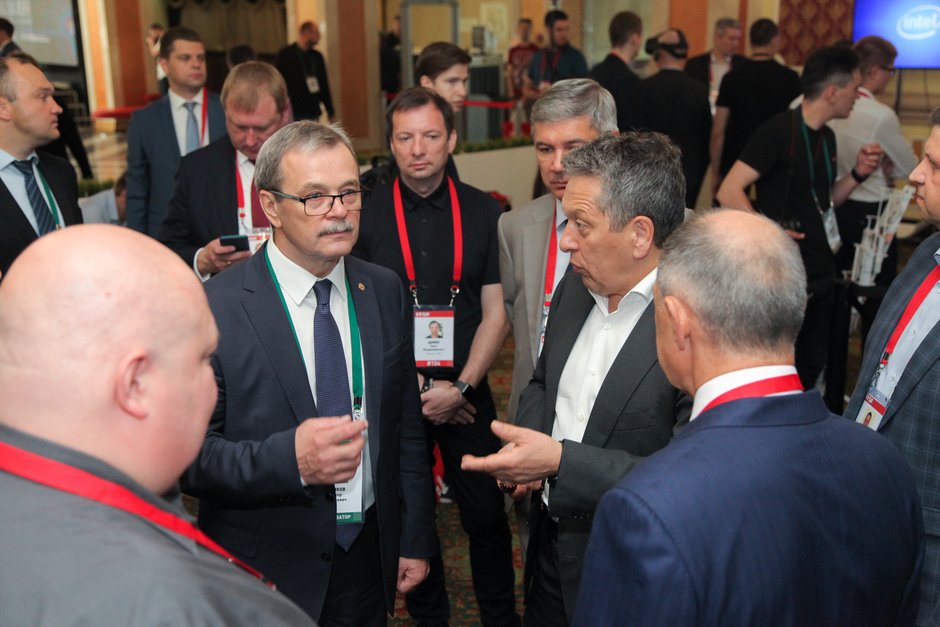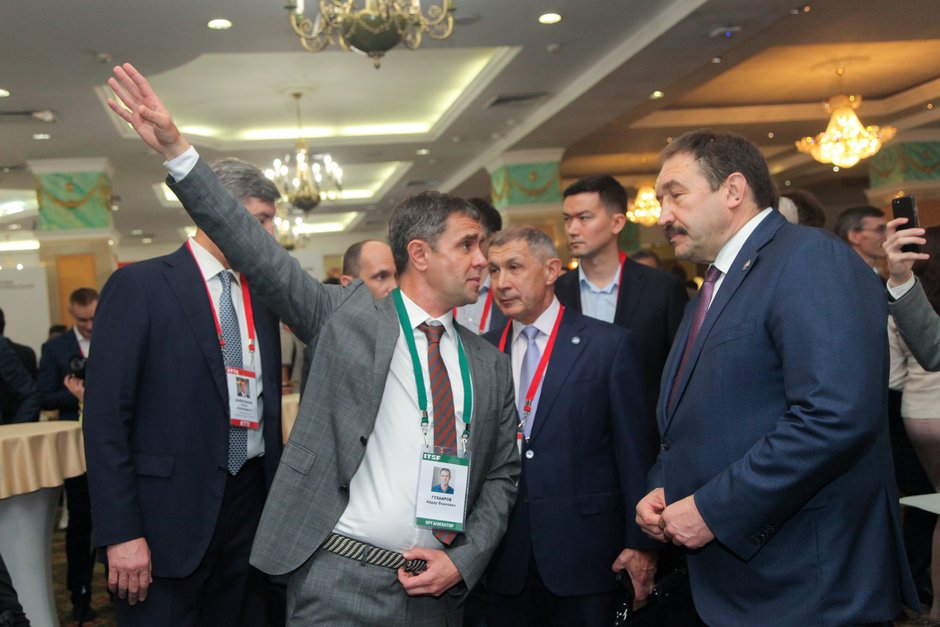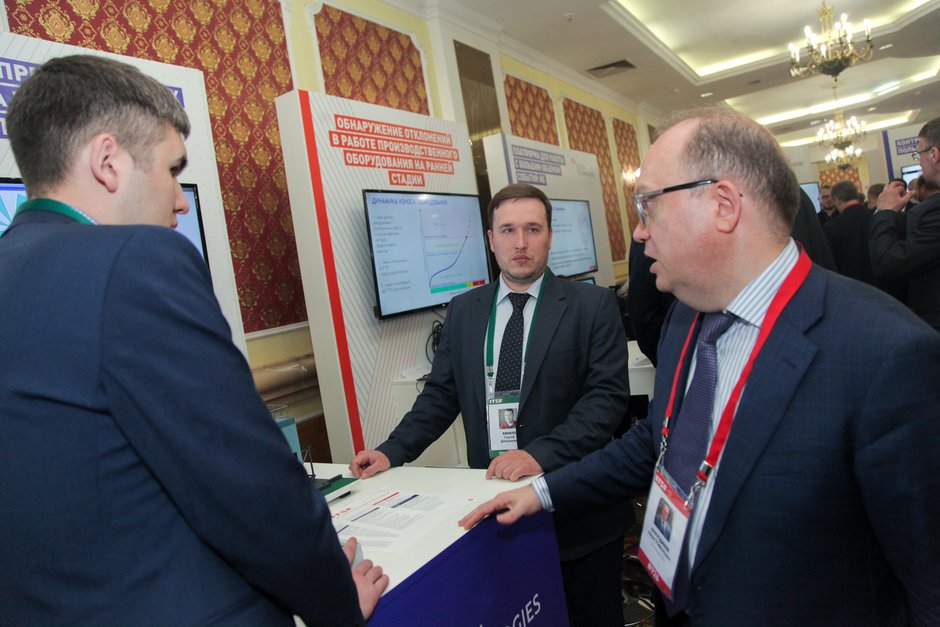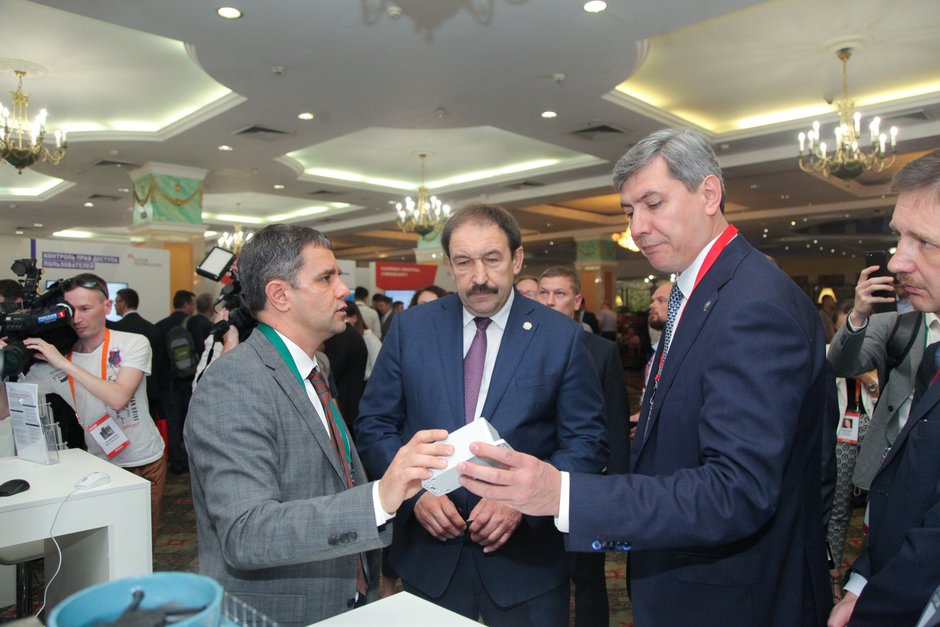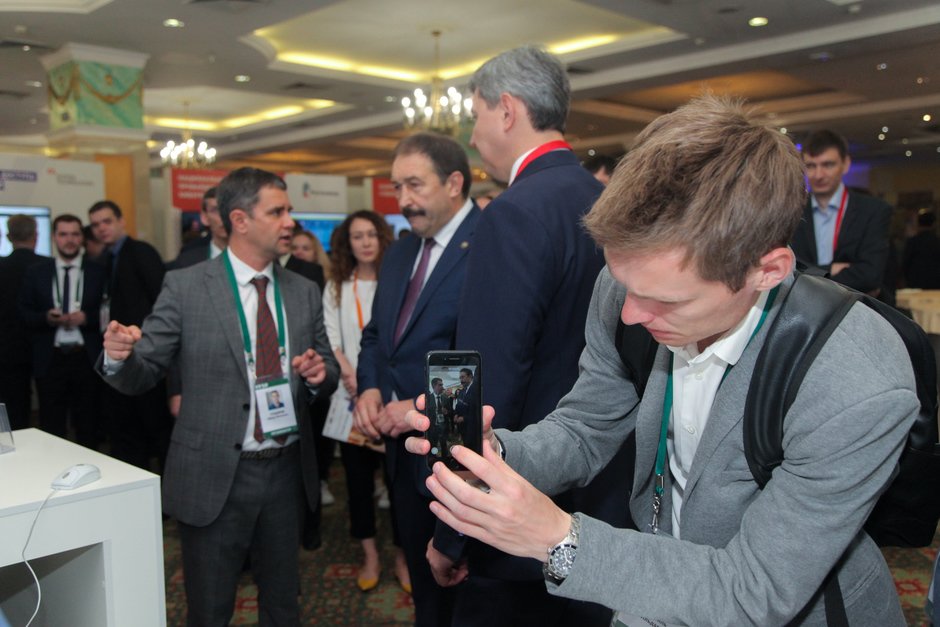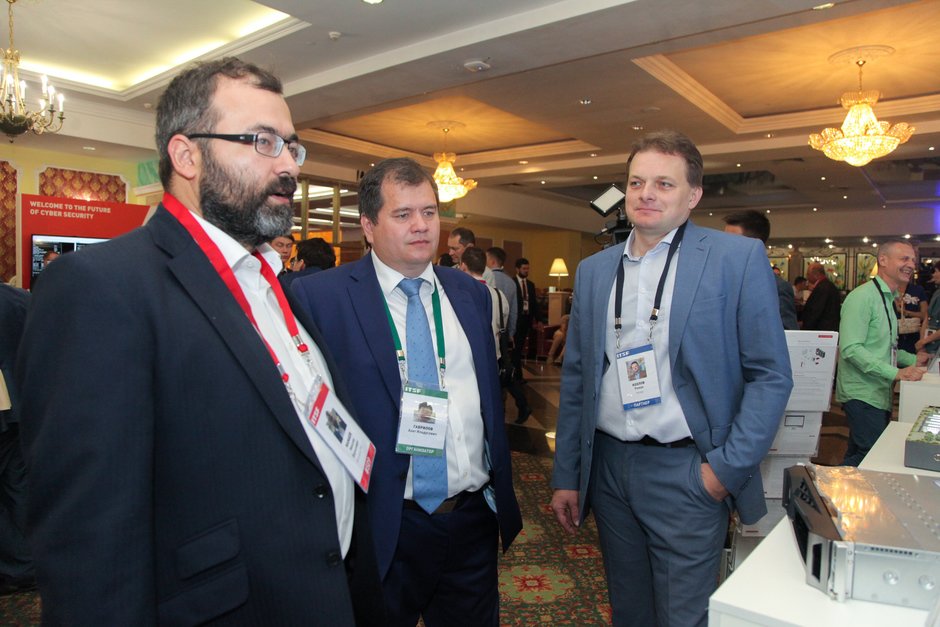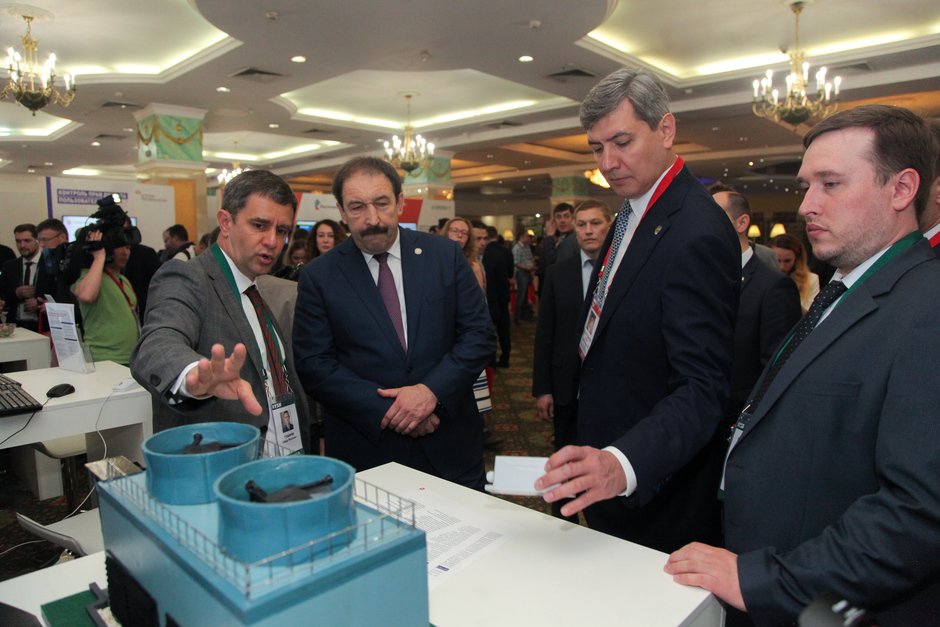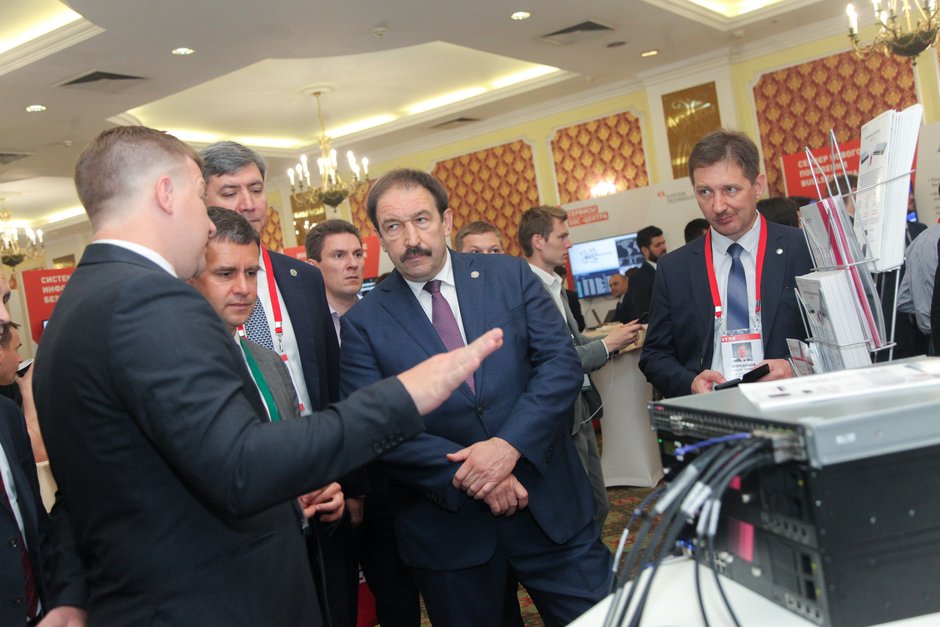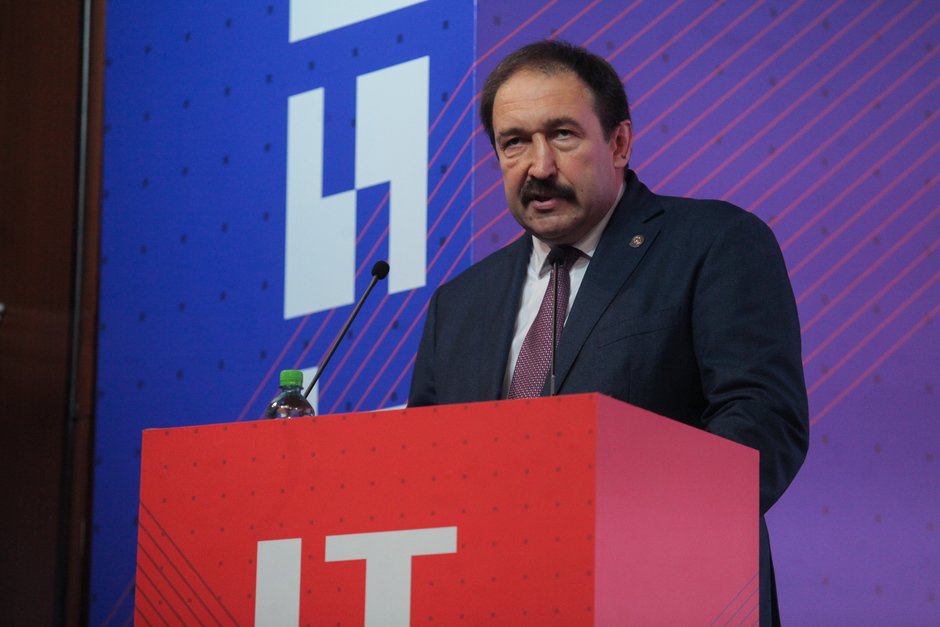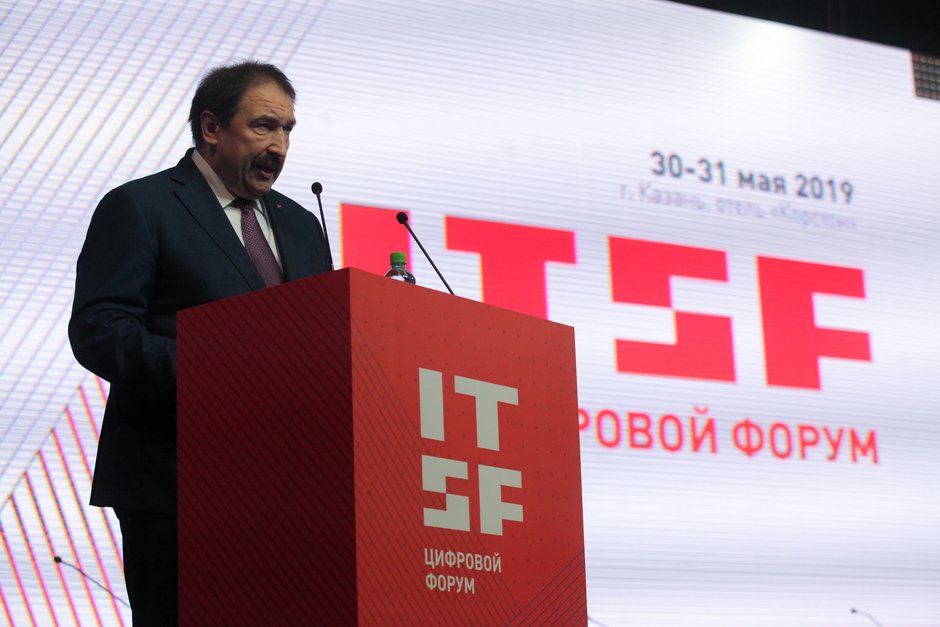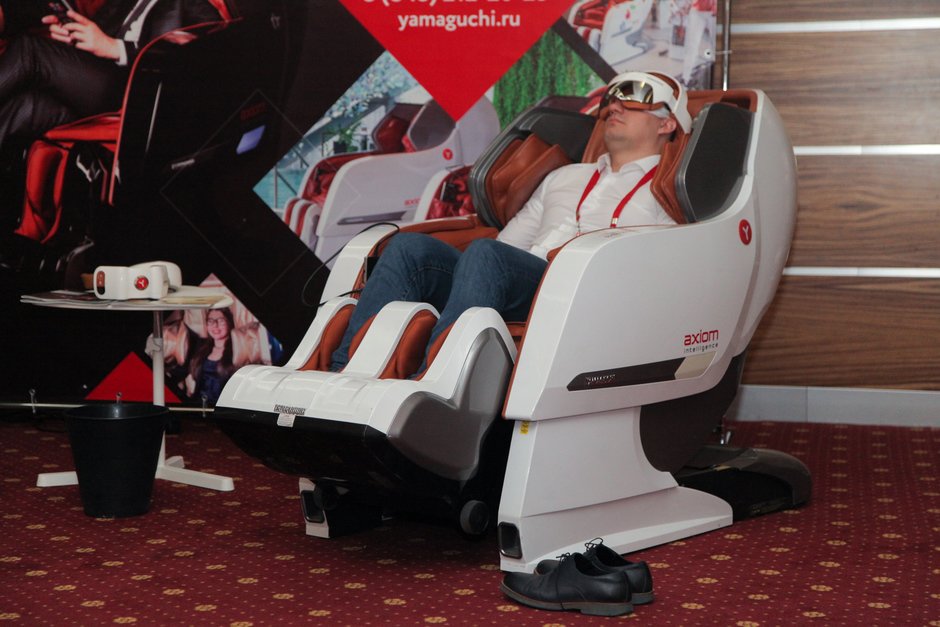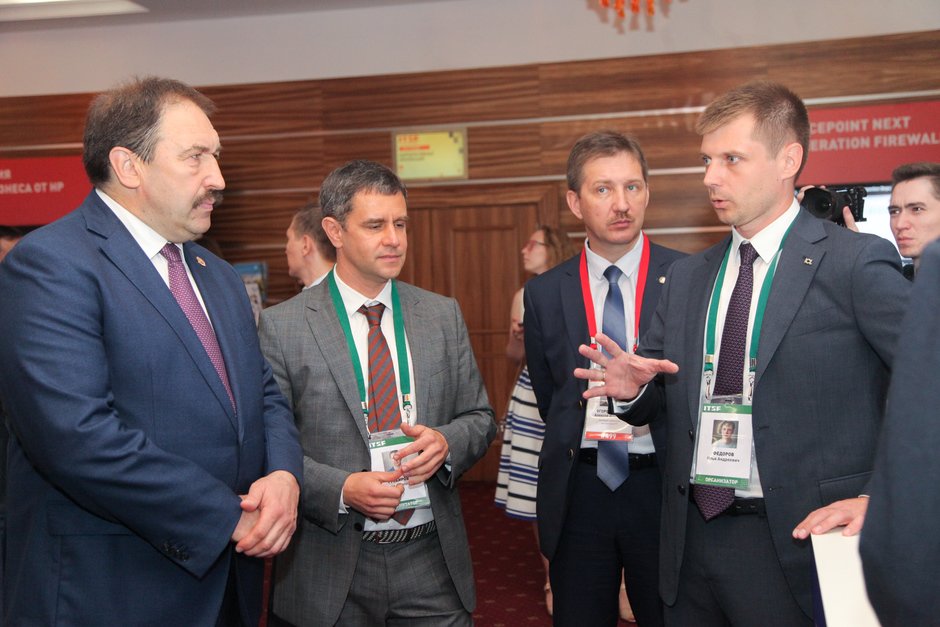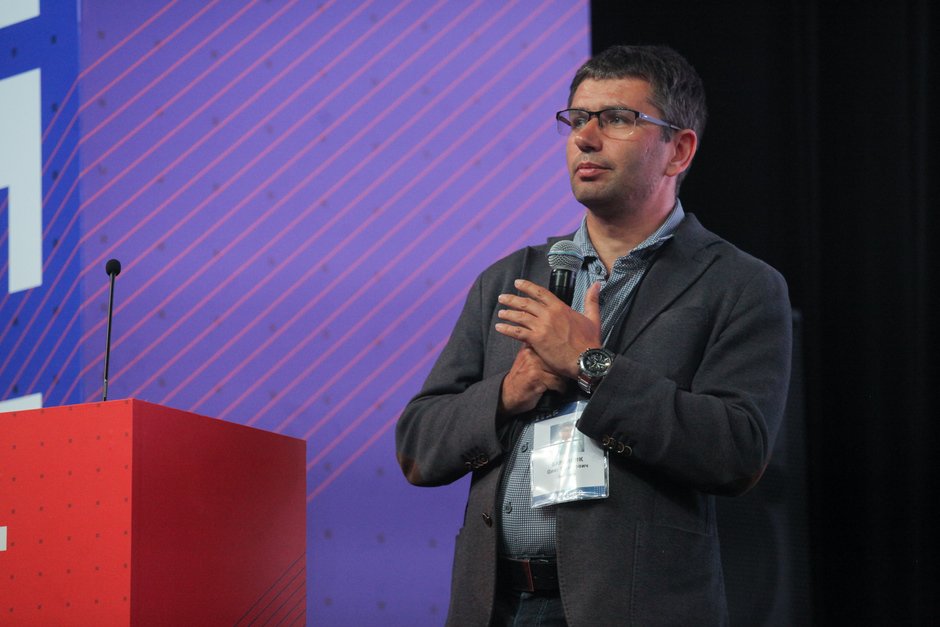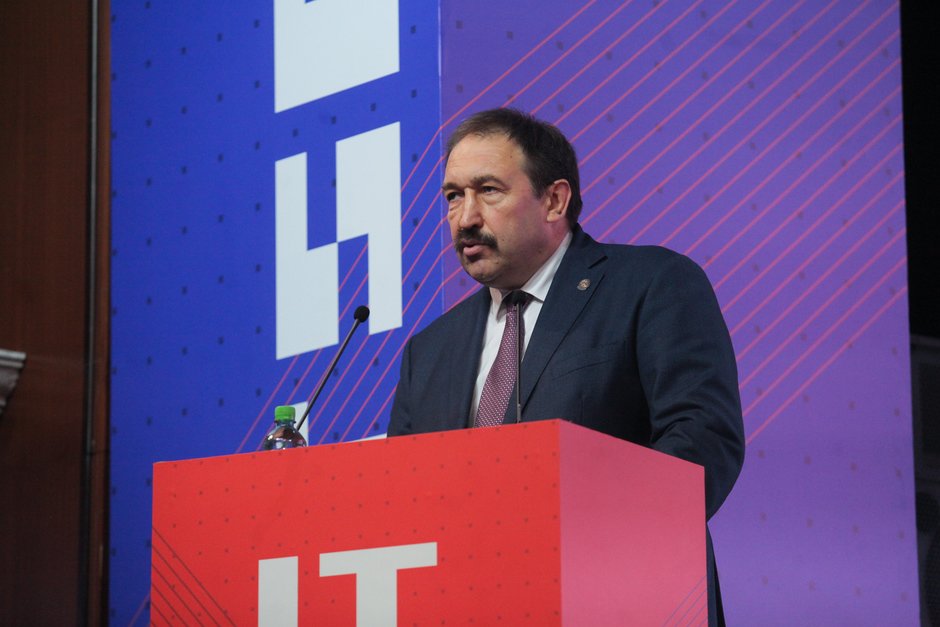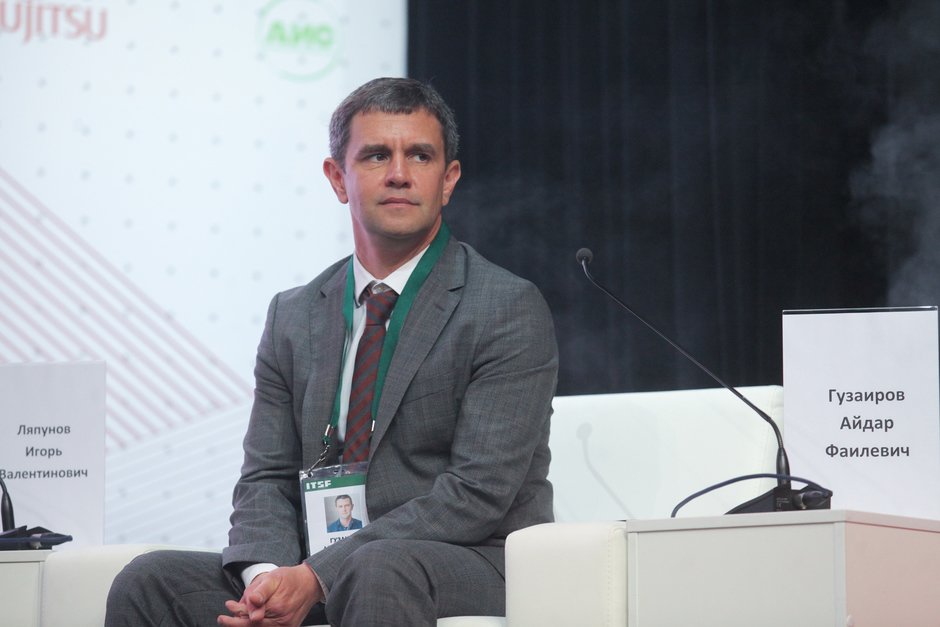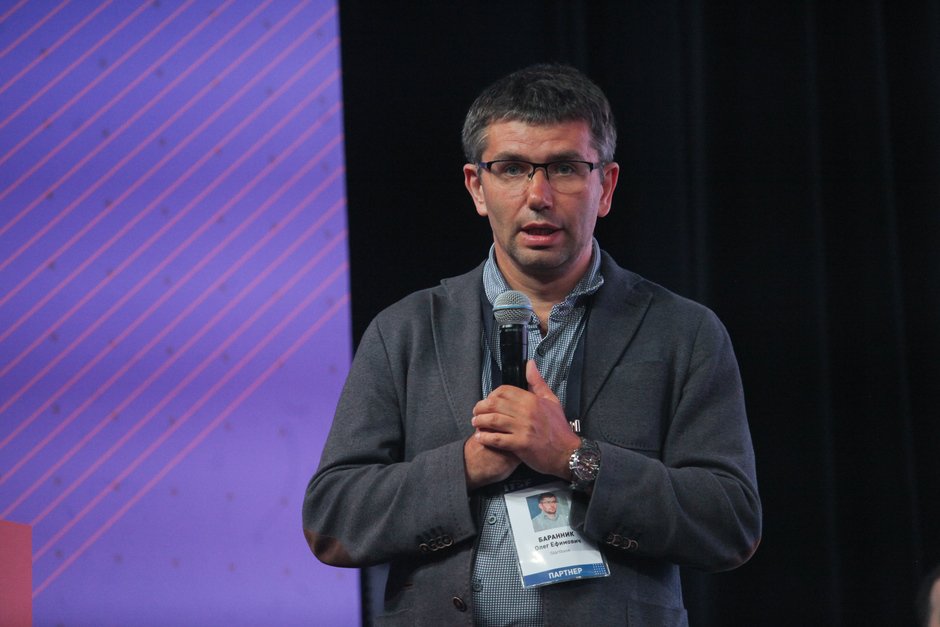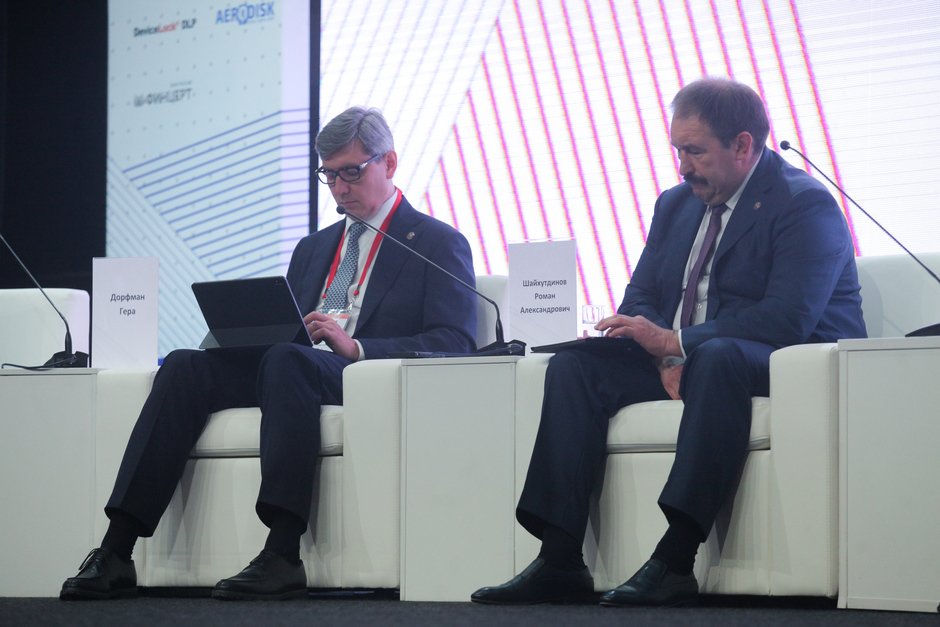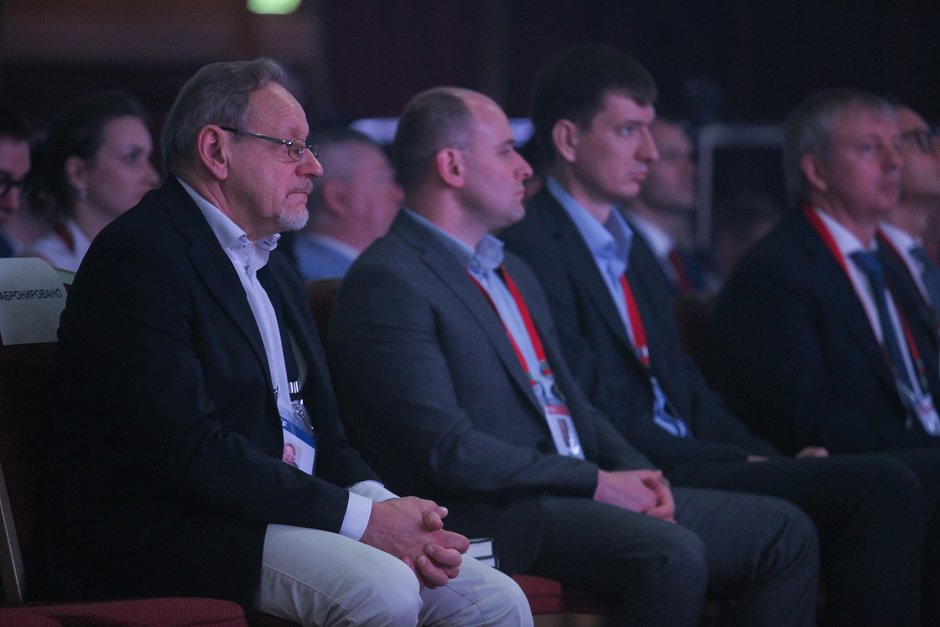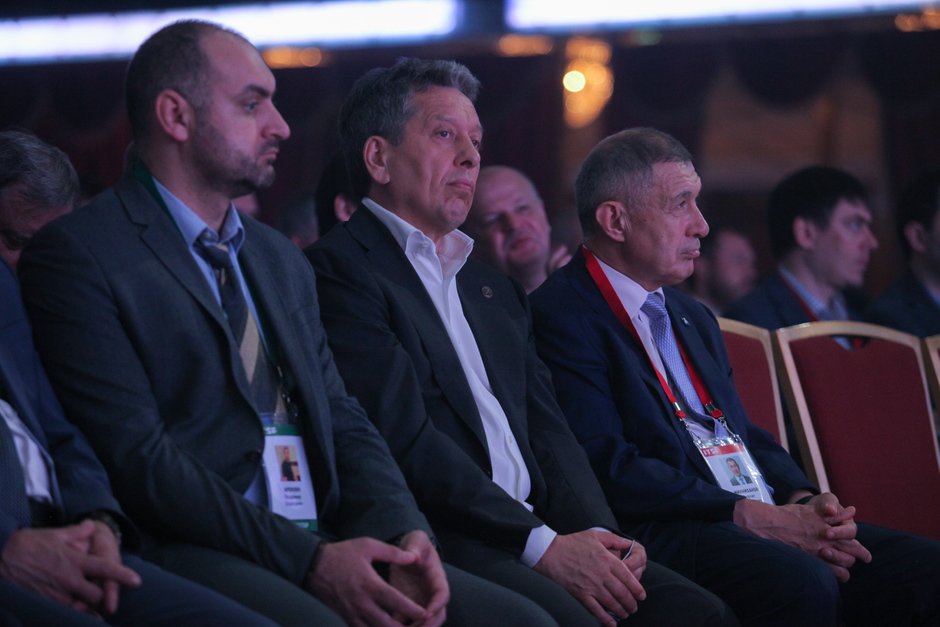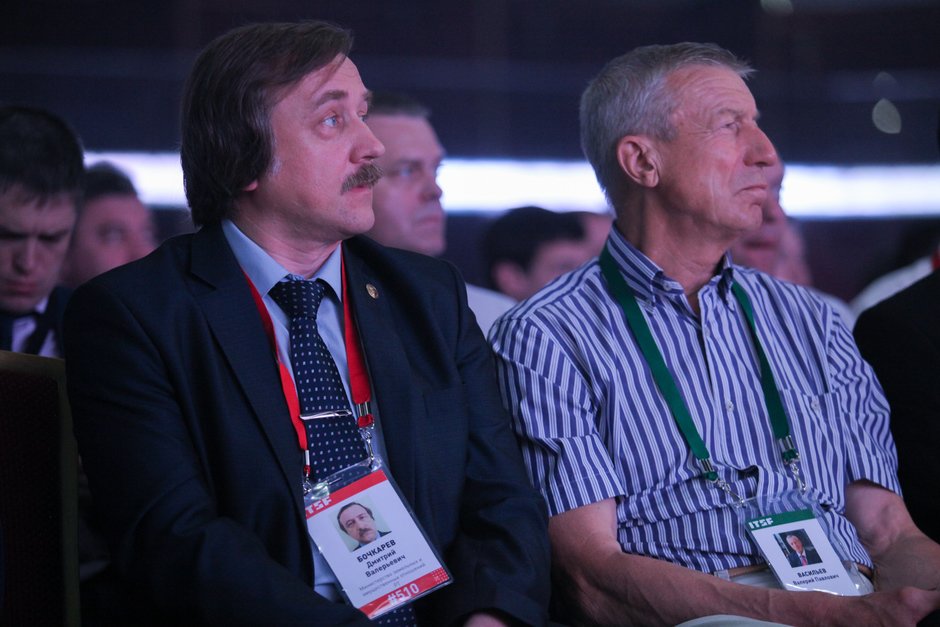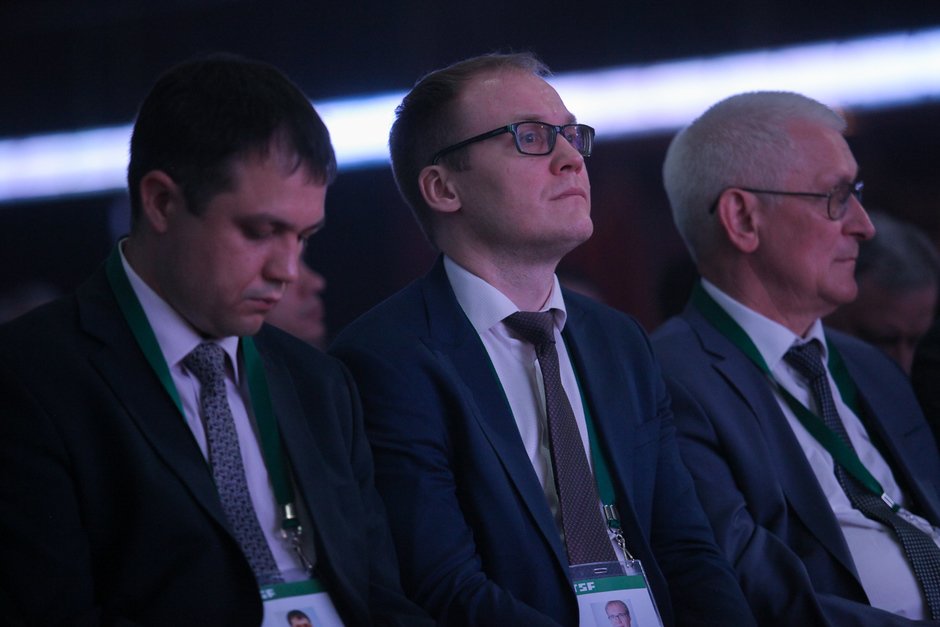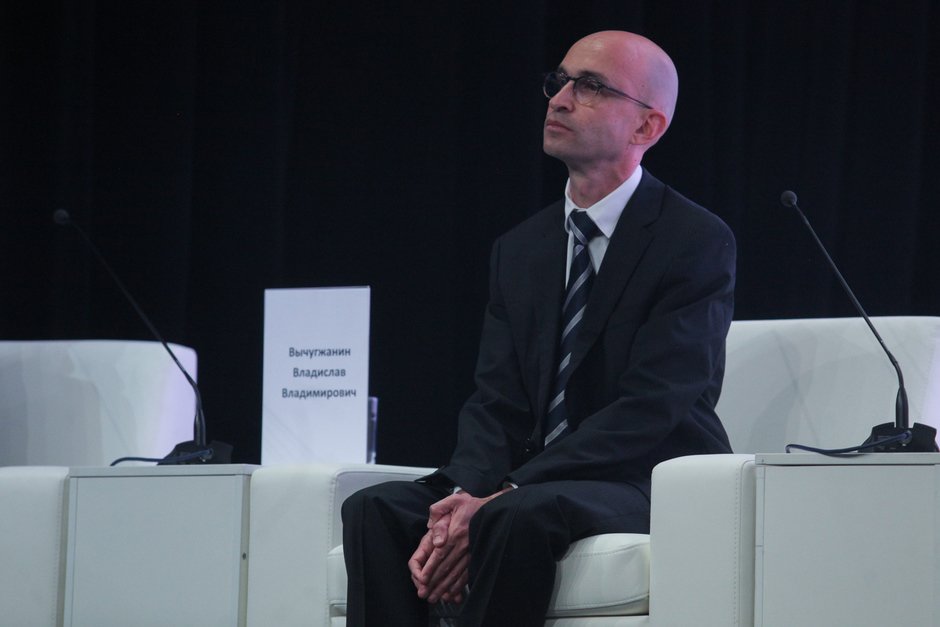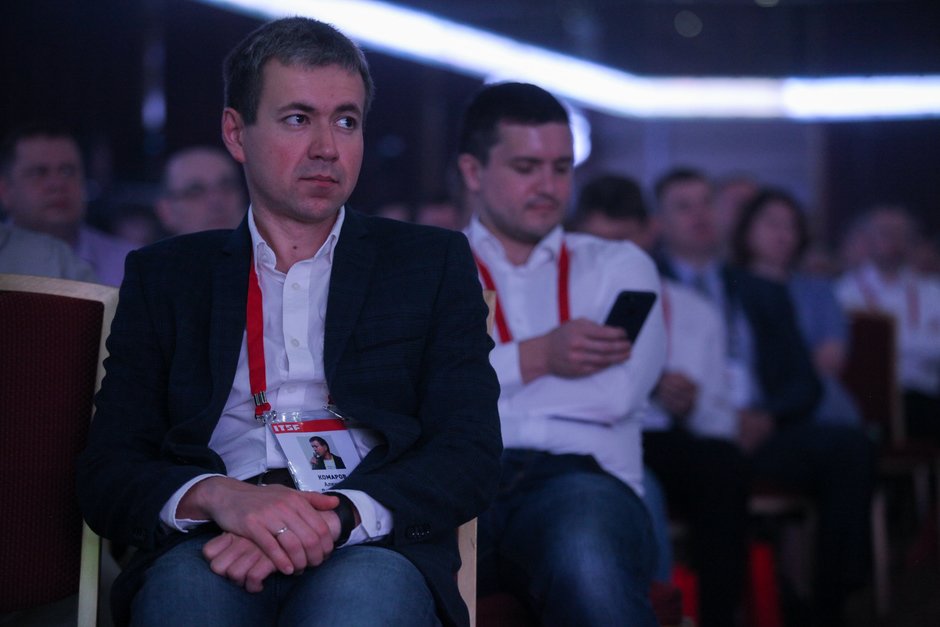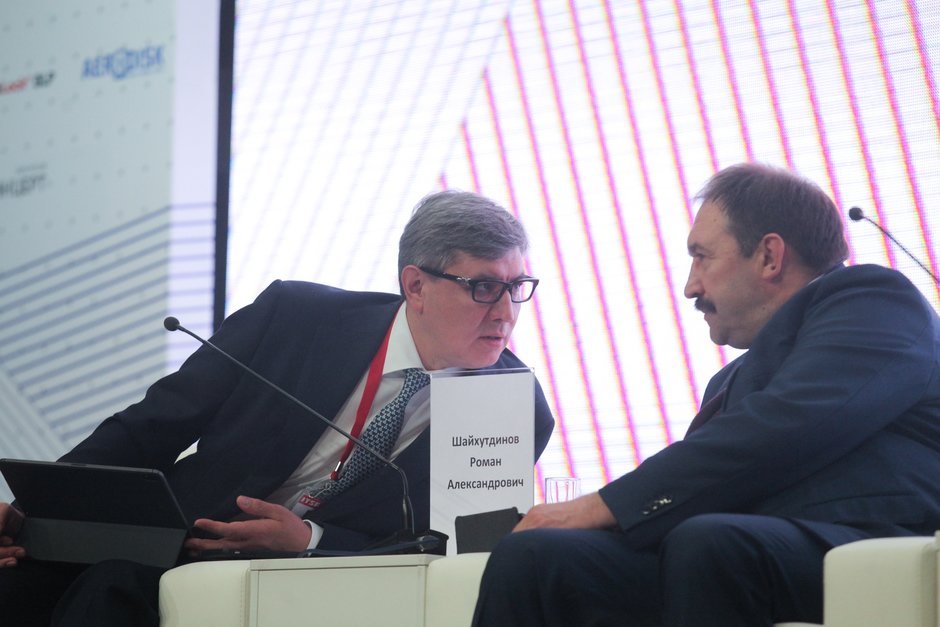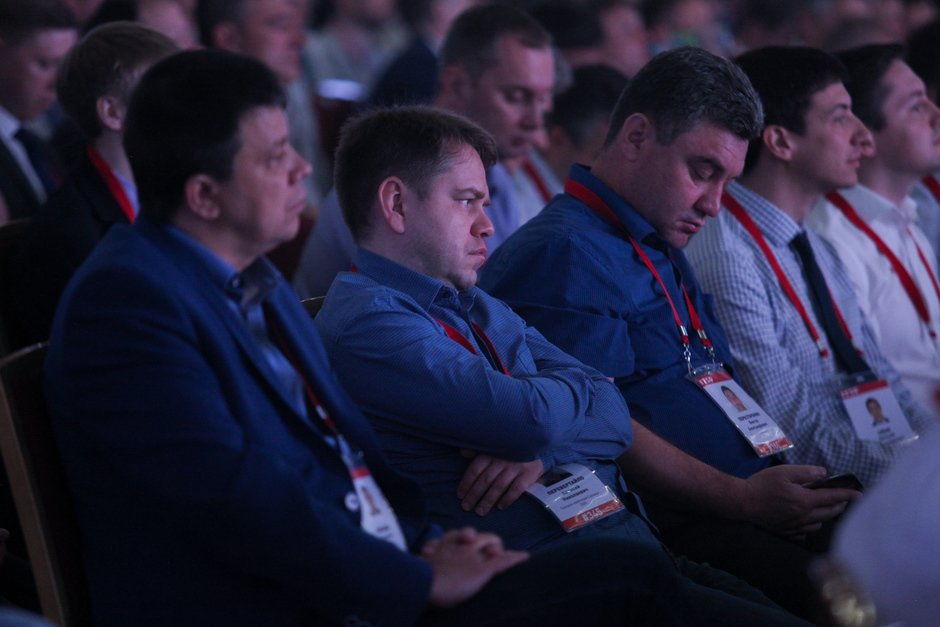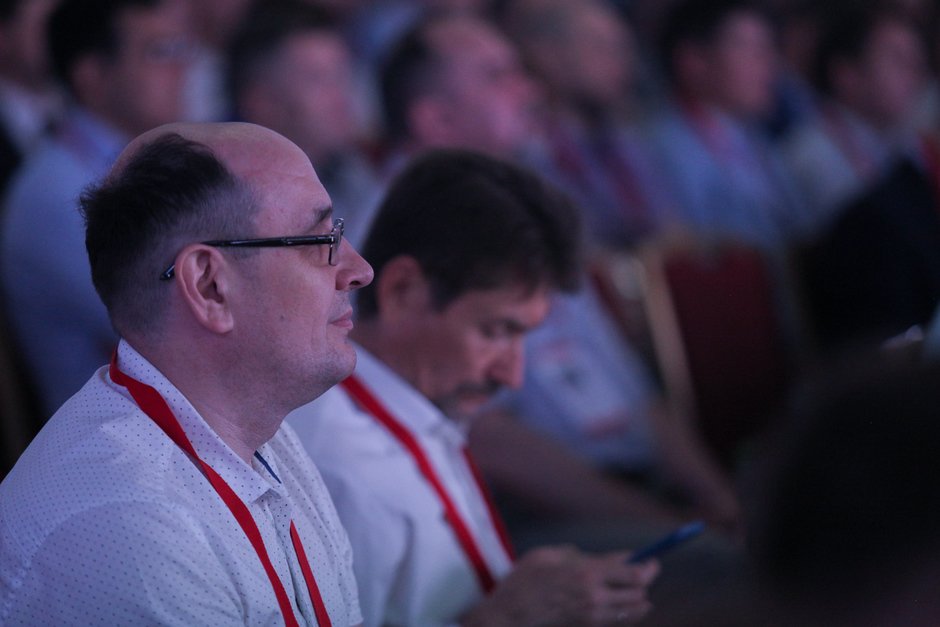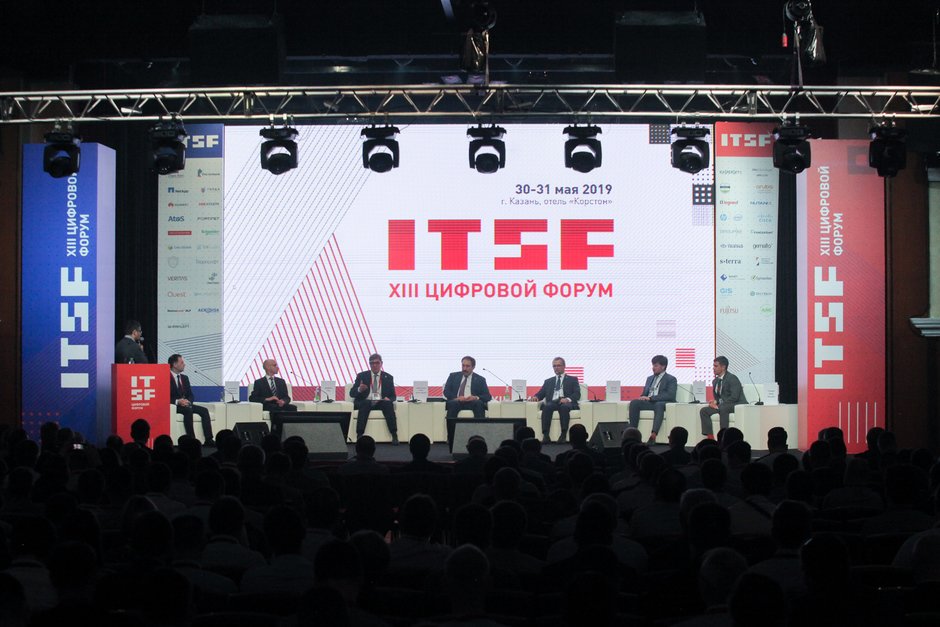How Rostelecom vice president argues with communications minister over start-ups and innovations
The responsibility of the state and big businesses for maintenance of innovations became the main topic of the plenary session of the IT & Security Forum forum in Kazan
Talking about the innovation economy of Russia, first of all, we should be talking about corporations. As practice shows, they have resources and a desire to invest, approve and introduce technological novelties. How did federal institutions created precisely for these purposes fall out of this process in the late noughties? What did Skolkovo and Rosnano face? And, most importantly, do state corporations themselves want to bear this burden? These questions opened the plenary session of the annual digital forum IT & Security Forum on 30 May morning, which was hosted by ICL in Kazan for the 13th time. Read what the Rostelecom vice president argued with the Tatarstan communications minister over and who, in experts’ opinion, must assume the responsibility for the promotion of innovations in the end in Realnoe Vremya’s report.
“They achieved something, they failed somewhere. But they performed the function of money distribution”
Expert of Skolkovo Foundation Oleg Barannik became the moderator of the discussion and opened the plenary session with the slogan “Role of State and Corporate Innovations in Digitalisation of Enterprises”. First of all, he offered to track the background and factors that led to the creation and establishment of the current picture of the digital technologies market in Russia.
“Several big federal “innovation development institutions” were created at the same time 10 years ago, it’s Skolkovo Foundation, Rosnano, Bortnik Foundation (Fund for Assistance to Small Innovative Enterprises) that were to play the role of the first development driver of innovation. They achieved something, they failed somewhere,” Oleg Barannik stated. “But they performed the function of money distribution. Though with certain faults, the process was launched. Some time later it turned out that big enterprises as major consumers of complicated innovative solutions were turned off in this scheme. There are development institutions, there are start-ups and market that remains alone.”
At the same time it became obvious to corporations that they couldn’t move ahead without innovations. The market regulated this situation itself, without any instructions from the top: plenty of new structures inside the corporations have appeared in the last 2-3 years that have begun systematic development of innovations — corporate venture funds, accelerators, directorates. This all can be observed in real time, the moderator explained.
“At the moment we are in this hall, the accelerator S.I.GROUP, which gathered about 15 in-house projects, is coming to an end. A decision on their launch with a total fund of requests of 5 billion rubles will be made on 28 June. Last week, Severstal launched two accelerators at once. MTS launched a big accelerator of external projects two weeks ago. We see a very important thing: precisely corporations become a development institution, the key driver of innovation by assuming the role, which was given to development institutions first according to an order from the top,” Barannik concluded having offered to switch to a problematic section of reports.
“Russia’s market of venture investors and free money isn’t so big”
Minister of Informatisation and Communications of the Republic of Tatarstan Roman Shaikhutdinov dedicated his report to an address to big businesses and urges to start cooperation with young teams making innovative products. He stressed that due to a small volume of “free money” for investing in IT start-ups today, the growth of innovations can be provided only by big businesses.
“We can divide innovations into two key categories: firstly, those that stopped being start-ups trying to attract Pre-Seed, Seed and further investments there, secondly, it is the corporate world. R&D used to be in the USSR. Not much has changed since then. Today R&D is corporate selected programmes for which companies are ready to have hackathons, attract young teams and use their solutions. I am urging all large companies to actively join this process. Russia’s market of venture investors and free money isn’t so big, corporate acceleration is the growth of innovations for us. One shouldn’t be afraid to cooperate with them, one shouldn’t try to absorb them, it is important to give them an opportunity to develop,” Shaikhutdinov concluded with the help of the moderator who was in a hurry due to the strict timing of the session.
The head of the Tatarstan Ministry of Informatisation and Communications offered to dedicate several minutes to a presentation he had made about state support of innovations in the project Digital Economy. However, the session’s protocol didn’t allow him to do it.
Chief architect on corporate systems at Rosatom GC Vladislav Vychugzhanin presented the position of state corporations. His speech only confirmed the points given by Barannik at the beginning of the meeting. The GC has focused on work with innovations inside the corporation in the last 10 years by financing, growing and approving its own developments. According to the specialist, in innovations, Rosatom focuses on corporate venture fund, augmentation of the scientific staff potential, cooperation with other corporations, but, most importantly, on the creation of a systematic and clear “R&D plan”.
“A state corporation is a big holding, and if a systematic plan isn’t created, there might appear competitive research that will simultaneously spend the small number of resources given to research,” he explained. In conclusion, Vychugzhanin defined Rosatom’s role in global digitalisation whose course was set in last year’s May decrees. “While we will create our own internal digital products, we will create products from them and deliver them to the commercial market. This will also help digitalisation of the Russian Federation,” the speaker expressed his opinion causing a mixed reaction in the hall.
“We must invest long money in it, not shift it to Rosatom or Rostelecom”
“I wanted to make quite a comfortable nice report about innovations, but the tone of our talk is pushing me to more incisive comments,” Vice President on Information Security at Rostelecom Igor Lyapunov took the floor. “The stories about investments that we hear now, venture funds look like… There is a story about dolphins saving sailors who turn out in the water after shipwreck. The story is that a dolphin pushes a sailor to the coast, so he survived. We don’t know stories about sailors pushed by dolphins to the other side.”
Lyapunov reminded that before he came to Rosatom, he had been running his own business for a long time, and this is why he urged to look at the problem of introduction of innovations from another angle. Multiple increase of volumes of stored, transmitted and processes data, higher speeds of changes in the IT sector require companies to change the approach to using and introducing new technologies — not reactive, when demand gives rise to supply but an innovative approach where the market already has plenty of ideas and solutions created by the start-up community.
“What does it mean from a perspective of a business? It means that there must be guys who have a lot of ideas and an opportunity to try a hundred times, fail and find a breakthrough and powerful idea at the 101st attempt. Those who are running a private business now know that you all go to a bank. And I went there saying that I needed money. Then a dialogue with any bank was very simple: “Igor, do you have a building?” I say: “No”. “Igor, do you have a machine tool?” I say: “No, I have intellectual property.” “So good with your intellectual property!” Rosatom’s delegate cited.
There is a slim chance of a small company that has only ideas of getting financing, especially “long money”, with a prospect of payback period in several years. This refers to both venture funds whose number in Russia is very small and banking structured. Denials and month-long denials await for start-ups everywhere, stated Lyapunov. According to the speaker, innovative development is impossible without systematic investments in this business. And the fact that Rosatom, Rostelecom and Rostec are ready and can invest in new developments and tests of technological solutions together with supporting measures included in the programme Digital Economy is just a drop in the ocean.
“I was a small private company, I made my choice — we came under Rostelecom, and Rostelecom is now a big player in our investment programme in cybersecurity, I won’t name the numbers. When I name the numbers in private talks with entrepreneurs from cybersecurity, I am said: “Wow!”. But it is a drop in the ocean. If we say that there must be innovations in Russia, we must invest long money in it, not shift it to Rosatom or Rostelecom.
We (state corporations) can’t invest in a private company with a prospect of five or ten years because dear law enforcement agencies will ask us why we invested money for 10 years without a guarantee it will come back. In this sense, talking about innovations, the situation isn’t so glowing as we hear now. Dolphins save too few sailors. Dear friends, let’s understand this situation very clearly — each of us invests, but at the moment it is a drop in the ocean, and it is very hard to be the most honest private investor or start-up to create innovations and a technological business,” Igor Lyapunov summed up.
“Did I understand correctly that I have to work my way up to vice president of a big company to become successful in cybersecurity?” Oleg Barannik ironically asked Lyapunov.
“You have to become interesting for a company with such a strategic development area,” Rostelecom’s top manager replied.
“I would like to go back to the topic of the plenary session about the role of government in innovations,” Roman Shaikhutdinov hurried to change the tone of the talk. The head of the Tatarstan Ministry of Informatisation and Communications anyway decided to demonstrate the presentation about state support of innovations he promised.
“Today we have venture investors and corporate budgets, but it’s only big companies that are able to finance innovations. The order No. 204 (On National Goals and Strategic Tasks of Development of the Russian Federation until 2024, adopted in May 2018) has been adopted today, in which the project Digital Economy was confirmed as one of the national projects. And we don’t talk about it as a source for some reason,” Shaikhutdinov explained.
The minister briefly reminded of six areas for grants of innovation developers provided by the federal project (LITS, Companies-Leaders, Regional Projects Based on Cross-Cutting Digital Technologies and so on). Big business should perform the role of the operator in some of them. Moreover, they all are either already implemented or at the stage of finalisation of road maps.
Russian companies are provided with financing on a competitive basis for projects in nine cross-cutting technologies (big data, artificial intelligence, distributed roster system, quantum and new manufacturing technologies, Industrial Internet, robotic and sensory components, wireless connection technologies as well as VR/AR).
“I am now probably creating a certain counterbalance. State corporations can’t be the only operators of innovations and some technological development,” Igor Lyapunov disagreed. “If we don’t create a start-up community, a state corporation can’t be an innovator — it has a shareholder that requires high marginality and return of the invested capital. This is why support from scratch and the creation of the entrepreneurial spirit and just small funding and financing are the key to the success of innovations. Start-ups are what serious debates are taking place about, including at the government level.”
“They complement each other,” Roman Shaikhutdinov agreed.
“Yes, actually, here it is only a matter of procedure of creation,” moderator of the meeting Oleg Barannik concluded the discussion.
